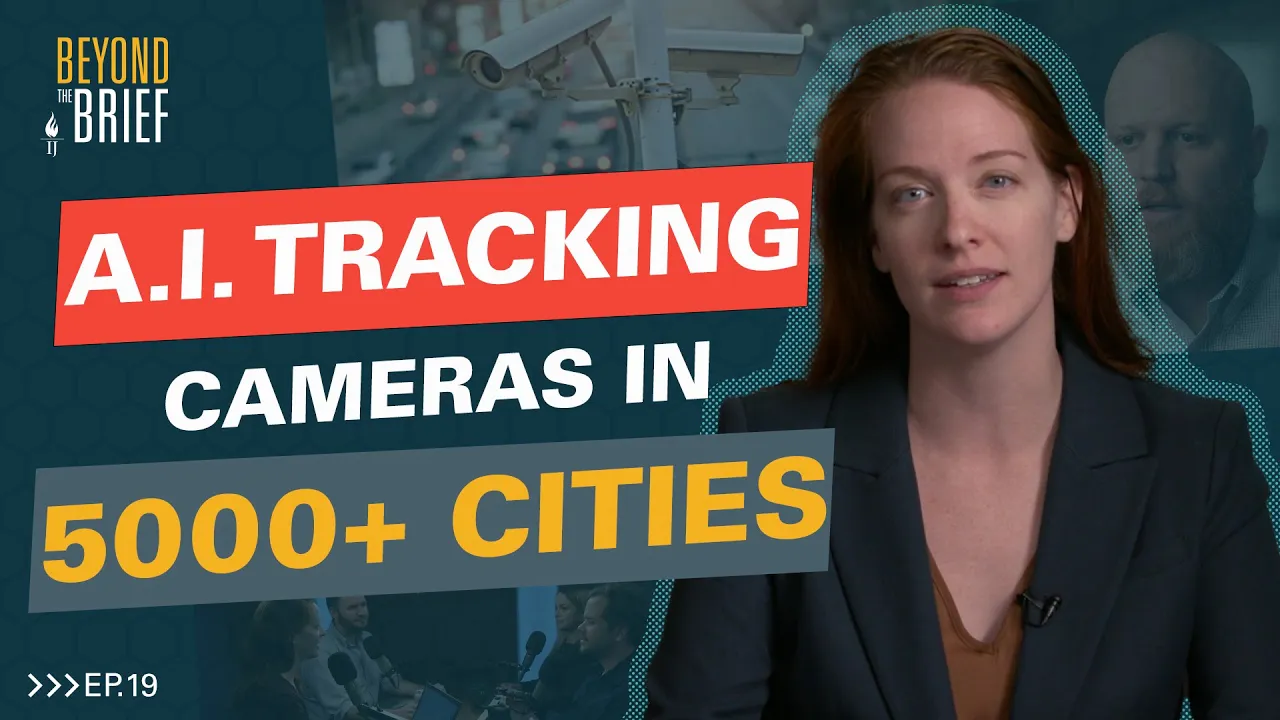Watch Florida Sheriff Terrorize Families with Creepy Algorithm - Institute for Justice
Original video
[BODYCAM] Watch Florida Sheriff Terrorize Families with Creepy Algorithm
https://www.youtube.com/watch?v=Fd_YfwoVaEg&ab_channel=InstituteforJustice
PLEASE SUPPORT The Institute for Justice!
They are working to defend YOU!
Go Like and Subscribe to their channel and SHARE their work
848,046 views Jul 6, 2022
The Sheriff’s Office of Pasco County, Florida, harasses people in their own homes using a method they call “predictive policing.” The program has unfolded like a dystopian nightmare for the Pasco County residents it has ensnared, who have been subjected to near-constant police surveillance and harassment. The Sheriff’s Office claims the program’s goal is to predict and prevent crime before it happens by targeting people they suspect may commit crimes in the future, dubbing the approach “intelligence-led policing.” This euphemism may make it seem like there’s thoughtfulness to the approach, but there’s nothing fair or smart about it.
https://ij.org/case/pasco-predictive-...
Using a crude computer algorithm, the Sheriff’s Office creates a list of people they think are likely to commit crimes in the future. It places people on the list based on their criminal record, but also based on things that the person may not have been able to control, such as whether they have been suspected of a crime, whether they witnessed a crime or even whether they were a victim of a crime. The Sheriff’s Office calls the people on the list “prolific offenders.”
Then, deputies are sent out to monitor, intimidate and harass people on the list. The deputies are instructed to gather as much information as possible about their targets, and routinely show up unannounced at people’s houses to interrogate them about their friends, their families and their comings and goings. Dalanea Taylor, who was placed on the prolific offender list because she had been incarcerated as a teenager, was harassed by Pasco deputies for years after she was released and had turned her life around.
Code enforcement is a favorite tactic for ensuring compliance during the deputies’ visits. To coerce people into letting the deputies into their home or answering their questions—or sometimes purely to intimidate them—the deputies slap their victims with citations for innocuous offenses like missing house numbers on the mailbox, chickens in the back yard or unmowed grass on the lawn. By design, family members of prolific offenders are ensnared by the program too. Robert Jones had a son on the prolific offender list, and Pasco deputies showed up at his door multiple times a week asking about his son. When the deputies decided that he wasn’t cooperating fully, they wrote him multiple citations for tall grass and other similar property code violations. They even arrested him several times on bogus charges.
Tammy Heilman and Dolly Deegan, who both had sons on the list, also received multiple citations for thousands of dollars in fines for code enforcement violations.
Worse, the motivation of the program is more sinister than merely “fighting crime”: The Sheriff’s Office acknowledged that they want these “problem people” gone. Pasco County Sheriff Chris Nocco, the architect of the program, boasted that the goal was to predict which residents are likely to commit crimes and then “take them out.” In the words of a former Pasco County deputy, they were under orders to “[m]ake their lives miserable until they move or sue.”
Experts on policing have roundly criticized Pasco County’s practices, pointing out that it is based on junk science and could tend to reinforce racially biased policing practices.
But the Sheriff’s use of predictive policing is not only methodologically shaky; it’s unconstitutional. The government cannot harass you in your home just because it has decided that you or someone you live with might someday do something wrong. That’s why Robert, Dalanea, Tammy, and Dolly have decided to challenge Pasco’s program, alongside the Institute for Justice, in court to affirm the basic principle that there is no such thing as “innocent until predicted guilty.”
Filmed on a Canon C70. B-cam Canon R5 with RF 70-200 2.8 lens. Drone shots taken on a DJI Mavic 3.




















